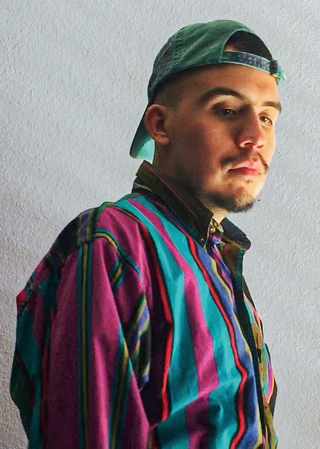Related Research Articles

Romantic orientation, also called affectional orientation, is the classification of the sex or gender which a person experiences romantic attraction towards or is likely to have a romantic relationship with. The term is used alongside the term "sexual orientation", as well as being used alternatively to it, based upon the perspective that sexual attraction is only a single component of a larger concept.

Sexual orientation is an enduring personal pattern of sexual attraction to persons of the opposite sex or gender, the same sex or gender, or to both sexes or more than one gender, as well as the degree of sexual attraction. Patterns are generally categorized under heterosexuality, homosexuality, and bisexuality, while asexuality is sometimes identified as the fourth category.

Asexuality is the lack of sexual attraction to others, or low or absent interest in or desire for sexual activity. It may be considered a sexual orientation or the lack thereof. It may also be categorized more widely, to include a broad spectrum of asexual sub-identities.
Sexual identity refers to one's self-perception in terms of romantic or sexual attraction towards others, though not mutually exclusive, and can be different to romantic identity. Sexual identity may also refer to sexual orientation identity, which is when people identify or dis-identify with a sexual orientation or choose not to identify with a sexual orientation. Sexual identity and sexual behavior are closely related to sexual orientation, but they are distinguished, with identity referring to an individual's conception of themselves, behavior referring to actual sexual acts performed by the individual, and sexual orientation referring to romantic or sexual attractions toward persons of the opposite sex or gender, the same sex or gender, to both sexes or more than one gender, or to no one.
India has developed its discourse on sexuality differently based on its distinct regions with their own unique cultures. According to R.P. Bhatia, a New Delhi psychoanalyst and psychotherapist, middle-class India's "very strong repressive attitude" has made it impossible for many married couples to function well sexually, or even to function at all.

Demisexuality is a sexual orientation in which an individual does not experience primary sexual attraction – the type of attraction that is based on immediately observable characteristics such as appearance or smell and is experienced immediately after a first encounter. A demisexual person can only experience secondary sexual attraction – the type of attraction that occurs after the development of an emotional bond. The amount of time that a demisexual individual needs to know another person before developing sexual attraction towards them varies from person to person. Demisexuality is generally categorized on the asexuality spectrum.
Queerala, a registered community based Organisation (CBO) for Malayali LGBTIQ people, gives adequate support to Malayali persons who belong to the sexual and gender minorities. Queerala originally started in May 2013 as a secret Facebook page where closeted LGBTQAI+ community members met over the internet. Since its start of operations, Queerala has been an active platform for the rights of the LGBTIQ+ community in Kerala and India and focuses on various awareness campaigns on Sexual Orientation, Gender Identity/Expression and Sex Characteristics (SOGIESC). Queerala's representatives has been marking its presence, in areas of literature, art, cultural spaces, academic discourses as well, besides conducting case studies on issues pertaining to sexual orientation and gender identity. They also focus on sensitisation on SOGIESC inclusive healthcare services, educational curriculum, workplace policies and local self governance.

Aromanticism is a romantic orientation characterized by experiencing little to no romantic attraction. The term "aromantic", colloquially shortened to "aro", refers to a person whose romantic orientation is aromanticism.

Gray asexuality, grey asexuality, or gray-sexuality is the spectrum between asexuality and allosexuality. Individuals who identify with gray asexuality are referred to as being gray-A, gray ace, and make up what is referred to as the "ace umbrella". Within this spectrum are terms such as demisexual, semisexual, asexual-ish and sexual-ish.

Lesbian, gay, bisexual and transgender (LGBT) people in Kerala face legal and social difficulties not experienced by non-LGBT persons. However, Kerala has been at the forefront of LGBT issues in India after Tamil Nadu. It became one of the first states in India to establish a welfare policy for the transgender community and in 2016, proposed implementing free gender affirmation surgery through government hospitals. Same-sex sexual activity has been legal since 2018, following the Supreme Court ruling in Navtej Singh Johar v. Union of India. In addition, numerous LGBT-related events have been held across Kerala, including in Kochi and Thiruvananthapuram. However, there is also increasing opposition to LGBT rights recently as evidenced by the anti-LGBT campaigns spearheaded by meninist groups and Muslim organisations like Indian Union Muslim League, Samastha and Jamaat-e-Islami.
This is a timeline of asexual history worldwide. The briefness of this timeline can be attributed to the fact that acceptance of asexuality as a sexual orientation and field of scientific research is still relatively new.

Sappho for Equality is an organization based in Kolkata, India, working for the rights of lesbians, bisexual women, and trans men in Eastern India.
Discrimination against asexual people, also known as acephobia or aphobia when directed at aspec people, encompasses a range of negative attitudes, behaviours, and feelings toward asexuality or people who identify as part of the asexual spectrum. Negative feelings or characterisations toward asexuality include dehumanisation, the belief that asexuality is a mental illness, that asexual people cannot feel love, and the refusal to accept asexuality as a genuine sexual orientation. Asexuality is sometimes confused with celibacy, abstinence, antisexualism, or hyposexuality.
In LGBT slang, a "gold star lesbian" is a lesbian who has never had sex with a man, and a "gold star gay" is a gay man who has never had sex with a woman. The terms can be joking, sincerely held identities, or stereotypes within the LGBT community. When used sincerely, the terms have been criticised as exclusionary towards bisexuality and other experiences of gender and sexuality, and as stigmatising survivors of sexual violence.
Queerplatonic relationships (QPR) and queerplatonic partnerships (QPP) are committed intimate relationships which are not romantic in nature. They may differ from usual close friendships by having more explicit commitment, validation, status, structure, and norms, similar to a conventional romantic relationship. The concept originates in aromantic and asexual spaces in the LGBT community. Like romantic relationships, queerplatonic relationships are sometimes said to involve a deeper and more profound emotional connection than typical friendship.
Abha Khetarpal is an Indian disability rights activist and counsellor based in New Delhi, India. She is the founder of Cross The Hurdles – a counselling/educational resource website and mobile application designed for people with disabilities.

The split attraction model (SAM) is a model in psychology that distinguishes between a person's romantic and sexual attraction, allowing the two to be different from each other.

Aze is a literary magazine for asexual, aromantic, and agender people that was created in 2016 and publishes issues online. It was formerly known as The Asexual until 2019 when it expanded to include aromantic and agender people. The magazine publishes visual art, poetry, and personal and academic essays on the subjects of asexuality, aromanticism, and agender experiences and their various intersections. It was founded by Michael Paramo.

Michael Paramo is a writer, academic, and artist known for founding the literary magazine Aze and for their work examining interpersonal attraction and love with consideration to asexuality, aromanticism, and agender identity. Paramo identifies on the asexual and aromantic spectrum and advocates for people of similar experience to express themselves toward expanding society's ideas of human sexuality, romance, and gender identity. They published a book Ending the Pursuit with Unbound in 2024.
References
- 1 2 Muzaffar, Maroosha (9 July 2018). "An Asexual Dating Platform Still Has Many Kinks to Sort Out". Vice. Retrieved 1 December 2019.
- 1 2 3 4 Jason Overdorf; Romita Datta; Moeena Halim; Suhani Singh (14 February 2017). "From matrimony website for asexuals to hall of heroes: All that's changing around you". India Today. Retrieved 1 December 2019.
- 1 2 3 Sharma, Khushboo (16 October 2019). "Pragati Singh Is Trying To Transform India's Gender & Sexuality Landscape Through Interactive Workshops". Indian Women Blog - Stories of Indian Women. Retrieved 1 December 2019.
- ↑ "BBC 100 Women 2019: Who is on the list?". 16 October 2019. Retrieved 20 November 2019.
- ↑ Changoiwala, Puja (5 December 2019). "The Love Doctor for Asexuals". Ozy. Retrieved 23 April 2021.
- 1 2 3 "Indian Aces: Awareness and Activism in India". AZE. Retrieved 1 December 2019.
- ↑ Yadav, Sidharth (21 July 2019). "Attempt to define asexuality in more than one way". The Hindu. ISSN 0971-751X . Retrieved 1 December 2019.
- 1 2 Halim, Moeena (21 February 2018). "Taking off the invisibility cloak". The Hindu. ISSN 0971-751X . Retrieved 1 December 2019.
- ↑ "Asexual Advocacy in India: An Interview with Dr. Pragati Singh". AZE. 27 March 2023. Retrieved 24 August 2023.